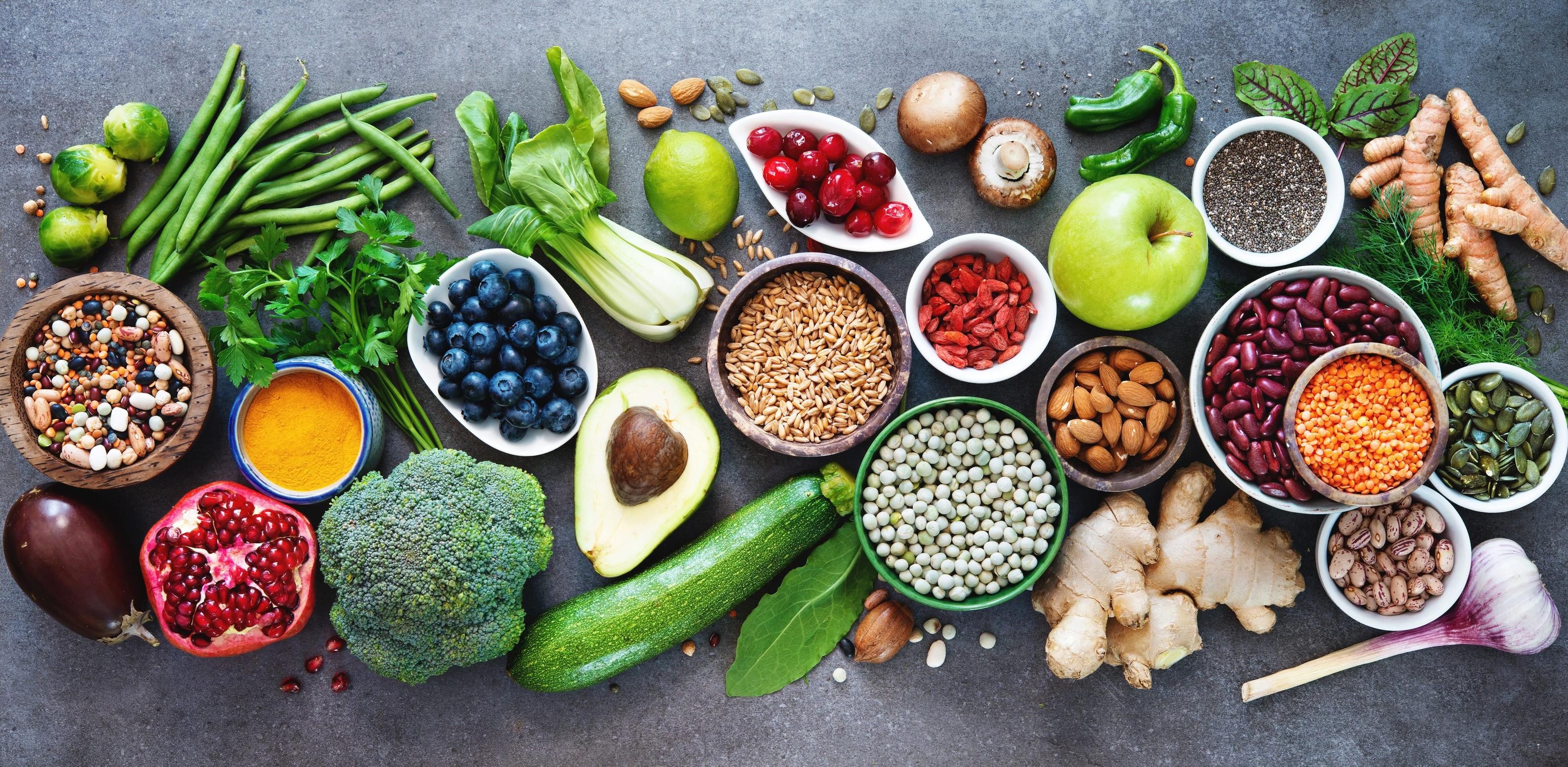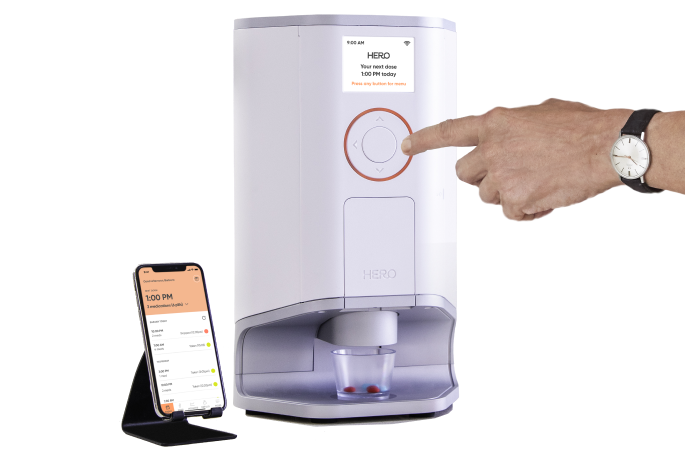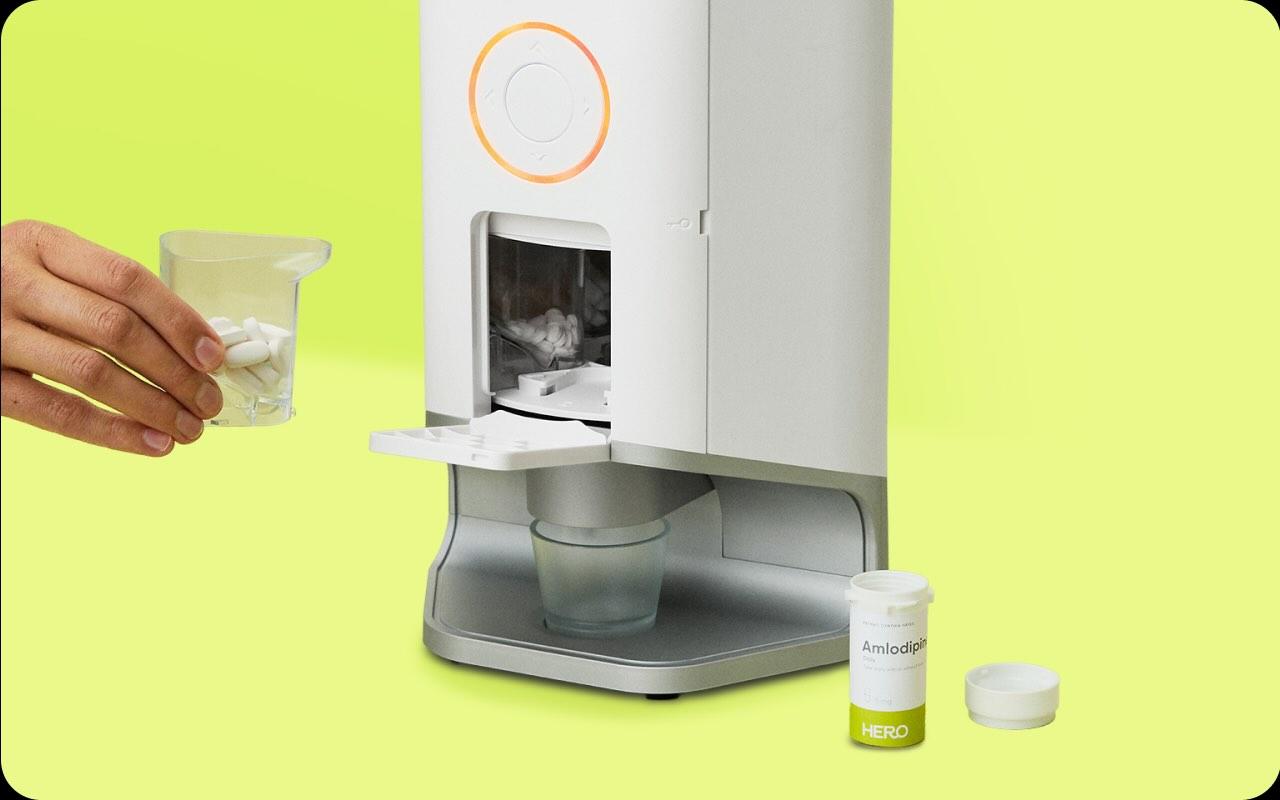Healthy Foods: The Key to a Balanced Diet and Unparalleled Health Benefits

Unlock the secrets to a healthier lifestyle with our comprehensive guide on foods. Discover the health benefits of a balanced diet, explore calcium-rich foods, and learn how to maintain a healthy diet. Dive into the world of nutrition and empower your wellness journey today.
Unlocking the Power of Foods for Optimal Health
The power of foods is often underestimated, yet they play a crucial role in maintaining optimal health. A well-balanced diet, rich in nutrient-dense foods, can significantly improve our overall health, reduce the risk of chronic diseases, and promote longevity. Imagine your body as a machine; the quality of fuel you provide determines its efficiency. By incorporating a variety of foods from different food groups into our daily meals, we help our bodies receive all the essential nutrients needed for optimal functioning.
Understanding the Importance of a Balanced Diet
A balanced diet is not just about eating fewer calories or losing weight; it's about nourishing your body with the right nutrients. It includes a variety of foods from all food groups: fruits, vegetables, whole grains, lean proteins, and dairy products. These foods provide key nutrients such as vitamins, minerals, dietary fiber, and essential amino acids necessary for maintaining good health and energy levels. For example, leafy green vegetables are packed with vitamins A, C, K, and calcium for healthy bones and skin; whole grains like brown rice provide dietary fiber for digestive health; lean proteins supply essential amino acids for muscle repair and growth; while dairy products offer calcium and vitamin D for bone health.
Health Benefits of Incorporating Nutrient-Rich Foods in Your Diet
Incorporating nutrient-rich foods into your diet has numerous health benefits. These foods are low in bad fats, sugar, sodium but high in vitamins and minerals. They can help maintain a healthy weight, and can lower blood pressure and cholesterol levels, thereby reducing the risk of heart disease. Nutrient-rich foods also support brain health by providing essential fatty acids like omega 3s found in oily fish. Moreover, they keep skin healthy by supplying antioxidants like vitamin E found in extra virgin olive oil. Let's say you start your day with a bowl of oatmeal topped with fresh fruit and nuts - you're not just enjoying a tasty grain but also feeding your body with fiber, vitamins, minerals, and healthy fats.
Some tips for incorporating nutrient-dense foods into your diet include:
- Opt for whole grains like brown rice and whole-wheat bread instead of refined grains
- Choose lean protein sources such as poultry, fish, and legumes
- Incorporate a variety of colorful fruits and vegetables into your meals
- Snack on raw vegetables, nuts, and seeds for added nutrients and fiber
- Limit processed foods high in sugar, sodium, and unhealthy fats
A well-balanced diet plays a crucial role in maintaining overall health and preventing various diseases. By incorporating nutrient-rich foods into your daily meals, you can reap numerous health benefits and improve your quality of life.
Some of the key benefits of a healthy diet include:
- Strengthening the immune system: Consuming a variety of fruits, vegetables, and whole grains provides essential vitamins and minerals that help boost your immune system and protect against infections.
- Supporting healthy growth and development: For teenagers and young adults, a balanced diet is vital for proper growth and development. Eating the right amount of calories and nutrients helps fuel both sports performance and overall growth.
- Promoting healthy skin, teeth, and eyes: A diet rich in vitamins A, C, and E, as well as minerals like zinc and selenium, can help keep your skin, teeth, and eyes healthy.
- Reducing the risk of chronic diseases: A well-balanced diet can lower the risk of developing heart disease, type 2 diabetes, certain types of cancer, and other chronic conditions.
- Aiding digestion: Consuming adequate dietary fiber from fruits, vegetables, legumes, and whole grains can help prevent or relieve constipation and promote overall digestive health.
To maintain good health, it's essential to eat a variety of nutrient-dense foods from all food groups, including fruits, vegetables, whole grains, lean proteins, and low-fat dairy products. By doing so, you can help to confirm that your body receives all the essential nutrients it needs to function optimally and prevent potential health issues.
Calcium Rich Foods: Building Strong Bones and Teeth
Calcium is a vital mineral that plays an integral role in maintaining the health of our bones and teeth. About 99% of our body's calcium is stored in our bones and teeth, making it essential for their strength and structure. In addition to this, calcium also aids in regulating heart rhythms, blood clotting, and muscle contractions.
Dairy Products: A Primary Source of Calcium
Dairy products are a primary source of calcium and should be included in a balanced diet. Foods such as milk, yogurt, and cheese are rich in calcium. For instance, an 8-ounce cup of milk contains approximately 300 mg of calcium. It's worth noting that the calcium content remains consistent whether the milk is skim, low fat or whole. Consuming dairy helps maintain strong bones and provides several vital nutrients, including vitamin D which aids in calcium absorption.
Leafy Green Vegetables: An Unexpected Calcium Source
While dairy products are often associated with calcium, leafy green vegetables are an unexpected but potent source of this essential mineral. Dark green vegetables such as broccoli, kale, and collards are excellent sources of calcium, especially when eaten raw or lightly steamed. Including these leafy greens in your diet can contribute significantly to your daily calcium intake and promote bone health. By diversifying your diet with both dairy products and leafy green vegetables, you can work to ensure that you're getting all the nutrients you need for healthy bones and teeth.
The Low Fat Diet: A Key to Maintaining a Healthy Weight
Maintaining a healthy weight is crucial for overall health and can help prevent and control many diseases. A low-fat diet, rich in essential nutrients, can play a significant role in maintaining a healthy weight. It's not just about eating less but making smarter food choices. For instance, choosing foods rich in nutrients over those high in saturated fats can make a significant difference.
Choosing Unsaturated Fats Over Saturated Fats
Incorporating unsaturated fats into your diet instead of saturated fats can help maintain a healthy weight and reduce the risk of heart disease. Foods containing unsaturated fats include avocados, nuts, and certain fish. These foods not only provide you with essential fatty acids but also keep you feeling satisfied, thus helping to control your calorie intake. However, it's important to remember that all fats are high in calories, so they should be consumed in moderation.
The Role of Oily Fish and Olive Oil in a Low Fat Diet
Oily fish and olive oil are useful parts of a low-fat diet. Oily fish like salmon are high in omega-3 fatty acids, which are known for their heart-health benefits. Similarly, olive oil is rich in monounsaturated fats and is a healthier alternative to butter or margarine. Including these foods in your diet can help you maintain a healthy weight while also reducing the risk of developing heart disease. However, portion control is key as both oily fish and olive oil are high in calories.
Complex med schedule? We solved it.
Hero’s smart dispenser reminds you to take your meds and dispenses the right dose, at the right time.

Foods That Help Lower Blood Pressure Naturally
Incorporating certain foods into your diet can naturally help lower blood pressure. The DASH (Dietary Approaches to Stop Hypertension) diet, for instance, is a healthy-eating plan designed to prevent or treat high blood pressure. It emphasizes the consumption of vegetables, fruits, whole grains, low-fat dairy products, fish, poultry, beans, and nuts. Foods rich in potassium, calcium, and magnesium are particularly beneficial. The diet also recommends limiting sodium intake by choosing low-salt or no-salt-added options and reducing alcohol consumption.
The Impact of Eating Fewer Calories on Blood Pressure
Eating fewer calories can have a significant impact on blood pressure. Calorie restriction means reducing average daily caloric intake without malnutrition or deprivation of essential nutrients. A practical effect of a fasting diet may be fewer calories because there is less time for regular eating. These eating patterns are being studied as possible ways to maintain good health and live longer. Many studies have shown that overweight people who lose weight by dieting can improve their health, including lowering their blood pressure.
How Leafy Green Vegetables and Whole Grains Contribute to Lower Blood Pressure
Leafy green vegetables and whole grains are two sources of nutrition that are helpful for lowering blood pressure. Green leafy vegetables such as spinach are good sources of magnesium, which is associated with reductions in blood pressure. Whole grains are also rich in dietary fiber which provides magnesium. Furthermore, the DASH diet emphasizes the consumption of leafy greens and whole grains due to their nutrient-rich profiles.
Overall, maintaining a balanced diet that includes a variety of nutrient-rich foods is key to managing blood pressure and promoting overall health.
Weight Management: The Role of Dietary Fiber and Portion Control
In the journey towards achieving a healthy weight, two key factors play an essential role - dietary fiber and portion control. Both of these elements are important considerations in maintaining a balanced diet, which is the cornerstone of weight management.
Understanding the Connection Between Dietary Fiber and Weight Loss
Dietary fiber, found mainly in fruits, vegetables, whole grains, and legumes, is known for its ability to prevent or relieve constipation. However, it also offers other health benefits like helping to maintain a healthy weight and lowering the risk of diabetes, heart disease, and some types of cancer. Dietary fiber can't be digested by our bodies. Instead, it passes through our stomachs relatively intact, adding bulk to our stools and making us feel full for longer periods. This feeling of fullness can reduce our overall calorie intake by preventing overeating. A study published by The Journal of Nutrition found that an increase in fiber intake was strongly associated with weight loss.
The Importance of Portion Control in Achieving a Healthy Weight
Portion control is another critical aspect of maintaining a healthy weight. It involves being mindful of the amount of food consumed at each meal and choosing serving sizes that align with nutritional goals. Research has shown that people consistently eat more when offered larger portions. By controlling portion sizes, individuals can regulate their caloric intake, avoid overeating, and ultimately manage their weight more effectively. The American Hospital Association recognizes the importance of portion control in promoting healthy eating habits and sustained weight loss. For example, using smaller plates can create the optical illusion of larger portions, helping individuals naturally consume smaller servings without feeling deprived.
To sum up, incorporating more dietary fiber into your meals and practicing portion control are practical strategies to manage your weight effectively while enjoying a variety of foods that contribute to your overall health.
Heart-Healthy Foods: Reducing the Risk of Cardiovascular Disease
Eating heart-healthy foods is a simple yet effective strategy to lower your risk of cardiovascular disease. Incorporating certain foods into your diet can improve blood cholesterol levels, ease inflammation, and stabilize heart rhythms. A well-balanced diet that includes a variety of nutrient-dense foods can help protect your heart and maintain overall health.
Omega 3 Fatty Acids: Essential for Heart Health
Omega-3 fatty acids are essential nutrients that play a critical role in heart health. They are predominantly found in oily fish, flax seeds, walnuts, and certain oils like canola or soybean oil. Consuming omega-3 fats regularly can lower the risk of premature death among older adults and reduce cardiovascular risk factors such as high blood pressure and high cholesterol. The American Heart Association recommends eating fish, a rich source of omega-3 fats, 2-3 times a week. For those who prefer plant-based sources, flax seeds, walnuts, and oils like canola or soybean oil are excellent choices.
The Role of Brown Rice and Other Whole Grains in Preventing Cardiovascular Disease
Whole grains like brown rice provide a "complete package" of health benefits that can help prevent cardiovascular disease. They are packed with fiber, B vitamins, antioxidants, and phytochemicals that support heart health. The fiber in whole grains helps lower cholesterol and prevents the formation of small blood clots that can trigger heart attacks or strokes. Moreover, studies have shown that choosing whole grains over refined grains lowers total cholesterol, bad LDL cholesterol, triglycerides, and insulin levels. This makes whole grains like brown rice an excellent food choice for reducing the risk of cardiovascular disease.
Boosting Brain Health Through Nutrition
A well-balanced diet is not only essential for physical health but also plays a significant role in maintaining brain health. Consuming nutrient-dense foods can enhance cognitive function, improve memory, and slow age-related cognitive decline.
Vitamin E and Omega 3 Fatty Acids: Essential for Brain Health
Vitamin E, found in nuts and seeds, is an antioxidant that helps reduce cognitive decline as we age. For instance, walnuts are a good source of this vital vitamin. Omega-3 fatty acids, found in fish like salmon and mackerel, can help with enhancing memory and combating damaging beta-amyloid blood levels associated with Alzheimer's disease. To reap these benefits, it's recommended to include fish in your diet at least twice a week. Additionally, omega-3s are present in certain oils such as flaxseed, soybean, and canola oils.
Dark Green Vegetables and Berries: Providing Antioxidants for Brain Health
Dark green vegetables like spinach and kale are rich in antioxidants such as vitamin E and K, beta carotene and folate. These nutrients help protect brain cells from damage, sharpen memory, and slow down cognitive decline. Similarly, berries like blueberries and blackberries are high in antioxidants that can reduce brain inflammation and boost brain function. Including these foods in your daily diet can give your brain the nutrients it needs to stay healthy.
Skin Health: How Foods Can Keep Your Skin Glowing and Healthy
The foods we consume can significantly impact our skin's health. A balanced diet rich in essential nutrients can help maintain a healthy glow and prevent various skin conditions. For instance, foods rich in monounsaturated fats and Vitamin C have been linked to improved skin health. Additionally, certain foods rich in beta carotene, like sweet potatoes and carrots, play a n important role in maintaining healthy skin.
Monounsaturated Fats and Vitamin C: Key Nutrients for Skin Health
Monounsaturated fats are known for their heart-healthy benefits but they also play a vital role in maintaining skin health. Avocados, for example, are high in monounsaturated fats and are a popular inclusion in vegan and vegetarian diets due to their slightly earthy but neutral flavor. The good fats found in avocados do not increase blood cholesterol levels, making them an excellent choice for a traditional cholesterol-lowering diet that is often low in fat and cholesterol.
Vitamin C is another key nutrient for skin health. It's an antioxidant that aids in your skin's natural regeneration process, which helps your body repair damaged skin cells. Foods like oranges, strawberries, red peppers, and broccoli are excellent sources of Vitamin C.
Sweet Potatoes and Carrots: Beta Carotene’s Role in Skin Health
Beta carotene is a type of carotenoid that gives certain fruits and vegetables their vibrant orange color. It's converted into vitamin A in the body, which is essential for growth and development, immune function, and eye health. However, it also plays a significant role in maintaining healthy skin.
Sweet potatoes and carrots are particularly rich in beta carotene. Regular consumption of these foods can help maintain healthy skin. Interestingly, consuming too much beta-carotene can cause a harmless condition called carotenemia, where the skin turns an orangey color.
To summarize, incorporating monounsaturated fats, vitamin C, and beta carotene-rich foods like avocados, oranges, sweet potatoes, and carrots into your diet can contribute significantly to maintaining healthy skin.
Remember to always pair your healthy eating habits with regular exercise and adequate hydration for optimal health benefits.

Managing Chronic Diseases with a Well-Balanced Diet
A well-balanced diet plays a sizable role in managing chronic diseases like osteoarthritis and rheumatoid arthritis. Consuming nutrient-dense foods like lean proteins, whole grains, fruits, vegetables, and healthy fats can help control inflammation, maintain a healthy weight, and improve overall health. For instance, omega-3 fatty acids found in oily fish can reduce inflammation associated with arthritis.
How a Balanced Diet Can Help Manage Rheumatoid Arthritis
A balanced diet is essential for managing rheumatoid arthritis. Foods rich in omega-3 fatty acids, such as oily fish, can help reduce inflammation. Moreover, maintaining a healthy weight by eating fewer calories can lessen the stress on joints, thereby reducing pain and improving mobility. It's also important to manage co-morbid conditions like diabetes and high cholesterol which can exacerbate arthritis symptoms. For example, controlling blood sugar levels and cholesterol through diet can help manage the inflammatory response within the body.
The Role of Vitamin D in Preventing Osteoporosis
Vitamin D plays a significant role in preventing osteoporosis. It promotes calcium absorption in the gut and maintains adequate serum calcium and phosphate concentrations for normal bone mineralization. Without sufficient vitamin D, bones can become thin, brittle, or misshapen. It's also important to note that vitamin D helps protect older adults from osteoporosis along with calcium. Foods rich in vitamin D include fatty fish like salmon and mackerel, cheese, and egg yolks. Moreover, sunlight is a natural source of vitamin D; hence spending time outdoors can also contribute to maintaining healthy vitamin D levels.
Hero: Simplifying Medication Management for a Healthier Life
In our fast-paced world, managing health and medications can be challenging. Hero, a healthcare startup, offers an innovative solution to this problem - a smart pill dispenser. This device not only organizes and dispenses medication according to the schedule you set within the connected app, it also tracks your medication adherence in real time so that you know exactly what you took, and when.

How Hero can Help Support Health Goals
The Hero smart pill dispenser holds up to a 90-day supply of 10 different medications and dispenses them according to the schedule you set. If you are utilizing supplements to improve your health, you can schedule them to dispense according to your doctor's instructions. For example, imagine you're on a healthy diet full of nutrient-dense foods like leafy green vegetables and whole grains to manage your health. Alongside this, you're also taking doctor prescribed medications. By setting up and using Hero's smart pill dispenser, you have additional help confirming that you're taking your medications as prescribed. The smart dispenser will alert you when it's time to take your medication. Plus, with the mobile app, you can adjust your medication schedule in real time, confirming that any changes made by your doctor are immediately reflected in your regimen. With Hero, managing medications may become less of a chore and more of a seamless part of your daily routine.
Promoting Adherence to Medication alongside a Healthy Diet with Hero
Adhering to medication regimens can be challenging, especially for those with multiple prescriptions or multiple health concerns. Hero's pill dispensers can help you simplify the process by giving you a system to organize your medications into a coherent schedule and providing reminders for when to take them on the schedule you set within the connected app. Remember to always follow your doctor's prescribing instructions for both prescription medications and over-the-counter supplements, and to always inform your doctor of any changes you make to your vitamin and supplement regimen.
The contents of the above article are for informational and educational purposes only. The article is not intended to be a substitute for professional medical advice, diagnosis, or treatment. Always seek the advice of your physician or other qualified clinician with any questions you may have regarding a medical condition or its treatment and do not disregard professional medical advice or delay seeking it because of information published by us. Hero is indicated for medication dispensing for general use and not for patients with any specific disease or condition. Any reference to specific conditions are for informational purposes only and are not indications for use of the device.



